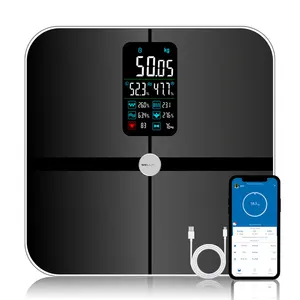Understanding BMI Scales
BMI scales, or body mass index scales, are specialized devices designed to estimate the body mass index of an individual—a measure that assesses body fat based on height and weight. These scales have become an integral tool for those monitoring their health, fitness enthusiasts, and medical professionals alike. The body mass index is a crucial indicator of one's health status, and a bmi machine provides a quick and easy way to monitor this.
Types and Features of BMI Scales
There is a variety of BMI scales available, each catering to different needs. The body bmi scale is a common household version, often equipped with features like body fat percentage estimation, which is essential for a comprehensive health assessment. For a more detailed analysis, a scale that calculates body fat can provide insights into body composition, including muscle mass and water percentage. In contrast, bmi scale women are tailored to the specific body composition metrics of the female body, ensuring more accurate readings.
Applications of BMI Scales
BMI scales serve multiple applications across various sectors. In a medical setting, a body mass index bmi machine is a staple for tracking patient health. Fitness centers utilize these scales to help clients manage and plan their weight loss or muscle gain programs. Moreover, a body scale with body fat measurement is increasingly common in households for individuals to keep track of their health goals. Even specialized versions like the obesity scale are used to support weight management in clinical environments.
Advantages of Digital BMI Scales
Digital BMI scales offer several advantages over traditional analog scales. They provide more accurate readings and the convenience of digital displays. Unlike analog scales, which may require calibration, digital scales typically only need a battery change to maintain their functionality. Additionally, many digital scales come with smart technology, allowing users to track their progress over time and sync data with other health applications.
Materials and Durability
The construction of BMI scales is designed for durability and long-term use. High-quality materials such as tempered glass for the platform and precision sensors ensure consistent performance. The robust build of these scales means they can withstand the rigors of daily use, whether in a professional environment or at home.
Selecting the Right BMI Scale
Choosing the right bmi index scale involves considering the specific features that meet individual or professional needs. For personal use, a bathroom scale with body fat measurement might be the most beneficial, providing not just BMI but also a comprehensive view of body composition. For professional settings, scales with higher weight capacities and enhanced precision might be necessary.































 浙公网安备 33010002000092号
浙公网安备 33010002000092号 浙B2-20120091-4
浙B2-20120091-4